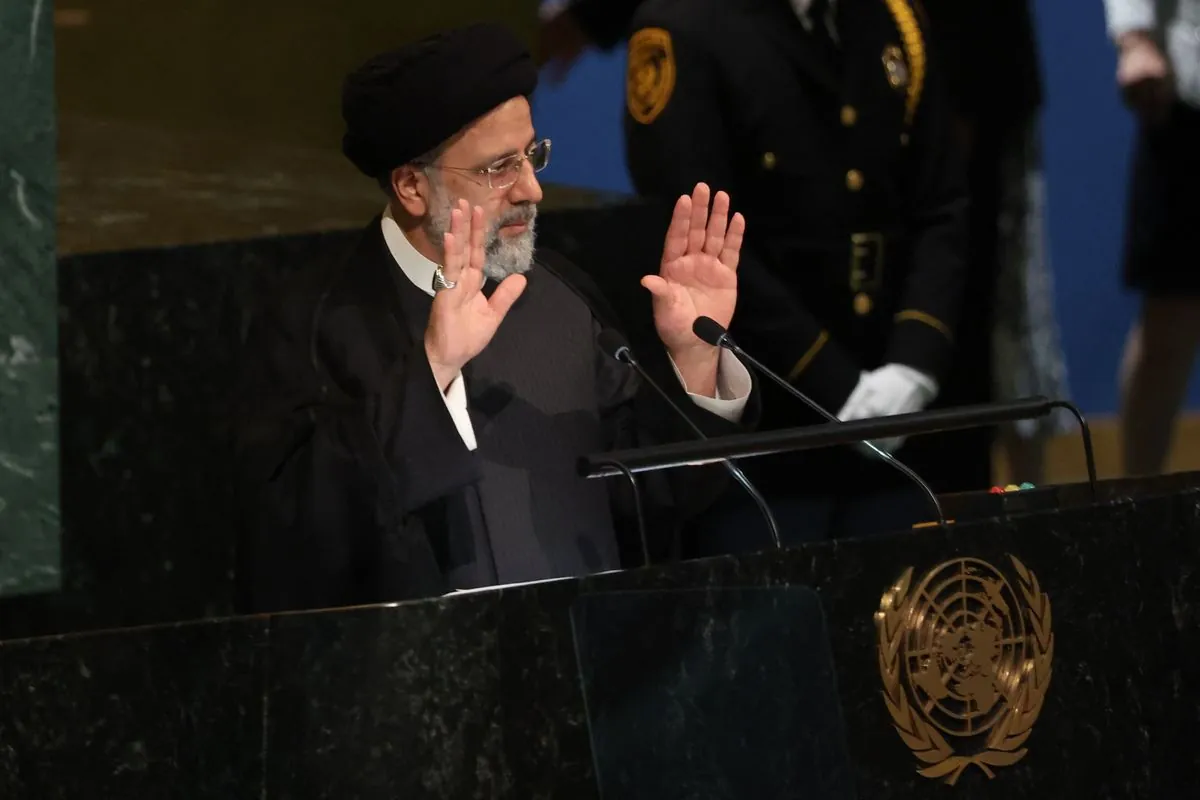Iran's president has leveled accusations against Israel, suggesting it is actively seeking to escalate conflicts in the Middle East. This statement comes amidst ongoing tensions in the region, particularly concerning the situation in Gaza and along the Israeli-Lebanese border.
Speaking to a group of media representatives at the United Nations, Masoud Pezeshkian expressed Iran's stance against the expansion of current hostilities. He emphasized that Iran does not wish to see an escalation of the Gaza conflict or the cross-border airstrikes between Israel and Lebanon.
Pezeshkian pointed out a perceived discrepancy between Israel's public statements and its actions. While Israel maintains it does not desire a wider war, the Iranian president argues that recent events suggest otherwise. He specifically referenced two incidents: the explosions of electronic devices in Lebanon and the assassination of Ismail Haniyeh, Hamas' political leader, in Tehran.
These accusations come against a backdrop of long-standing regional tensions. Iran and Israel have been in a state of hostility since the 1979 Iranian Revolution, with their relationship characterized by mutual distrust and occasional indirect confrontations. The Gaza Strip, controlled by Hamas since 2007, has been under a blockade by Israel and Egypt, further complicating the regional dynamics.
The Middle East has been a focal point of international diplomacy and conflict for decades. The Israeli-Palestinian conflict, dating back to the mid-20th century, remains a central issue. Recent developments, such as the Abraham Accords of 2020, which normalized relations between Israel and several Arab states, have reshaped some regional alliances but have not resolved core conflicts.
Iran's role in the region has been controversial, with accusations of supporting various militant groups, including Hamas and Hezbollah. Conversely, Israel has conducted numerous covert operations in neighboring countries, often targeting what it perceives as threats to its security.
The international community, particularly the United Nations, has played a significant role in mediating Middle East conflicts. However, lasting peace remains elusive. The Syrian Civil War, which began in 2011, and the ongoing Yemen conflict, often described as a proxy war between Iran and Saudi Arabia, have further destabilized the region.
Economic factors also play a crucial role in regional dynamics. Iran has faced numerous international sanctions, particularly related to its nuclear program. The Joint Comprehensive Plan of Action (JCPOA), signed in 2015 but later abandoned by the US in 2018, was an attempt to address concerns about Iran's nuclear ambitions.
As tensions continue to simmer, the potential for wider conflict remains a concern for many in the international community. The accusations made by Iran's president at the UN highlight the complex web of relationships and conflicts that define the current state of Middle Eastern politics.
"While Israel insists it doesn't want a wider war, it is taking actions that show otherwise."
The situation remains fluid, with each incident and accusation potentially shifting the balance of power and alliances in this volatile region. As international observers and regional powers alike watch closely, the path to de-escalation and lasting peace remains uncertain.
